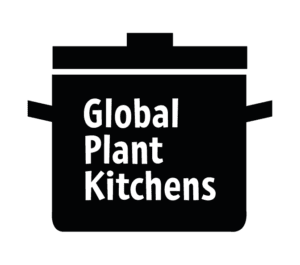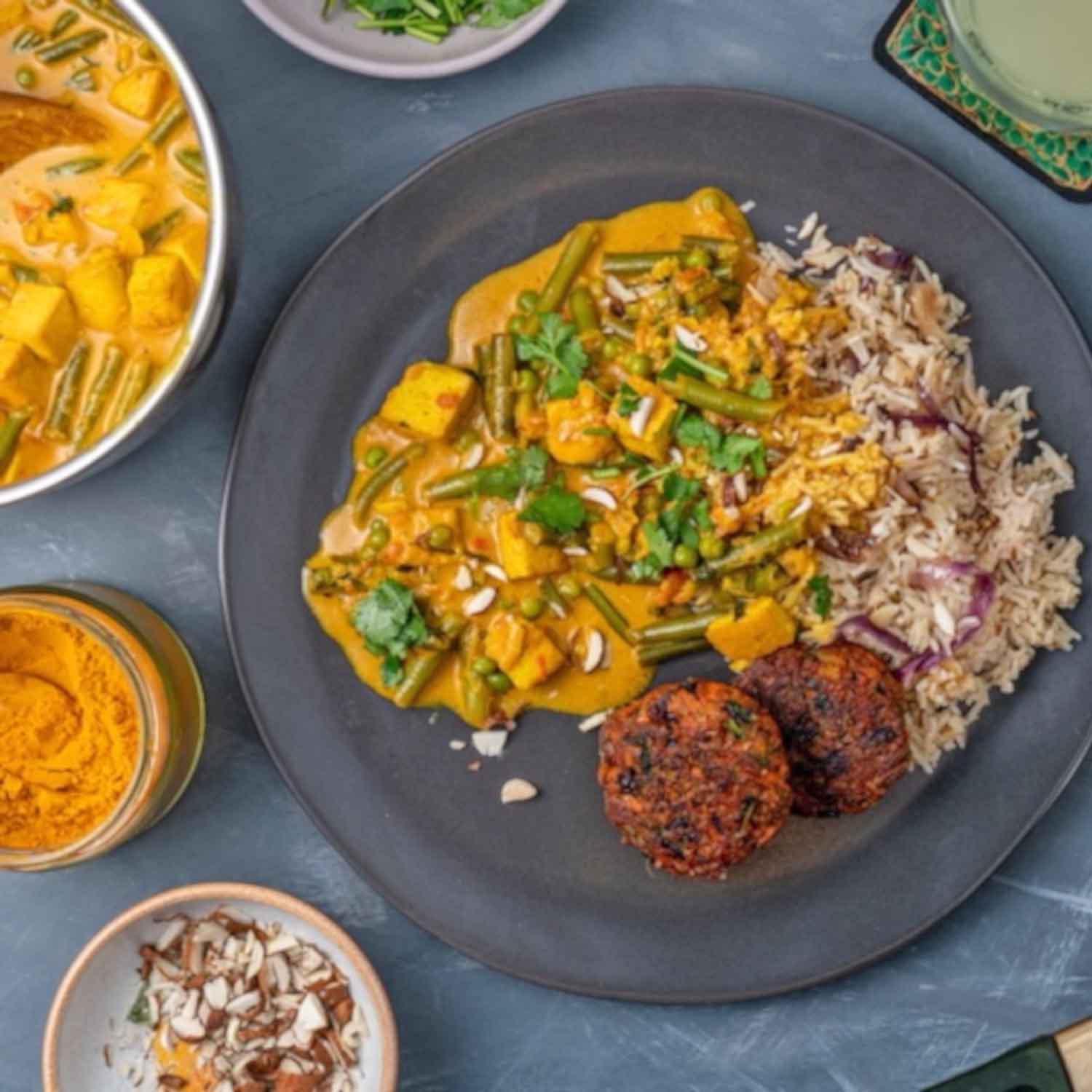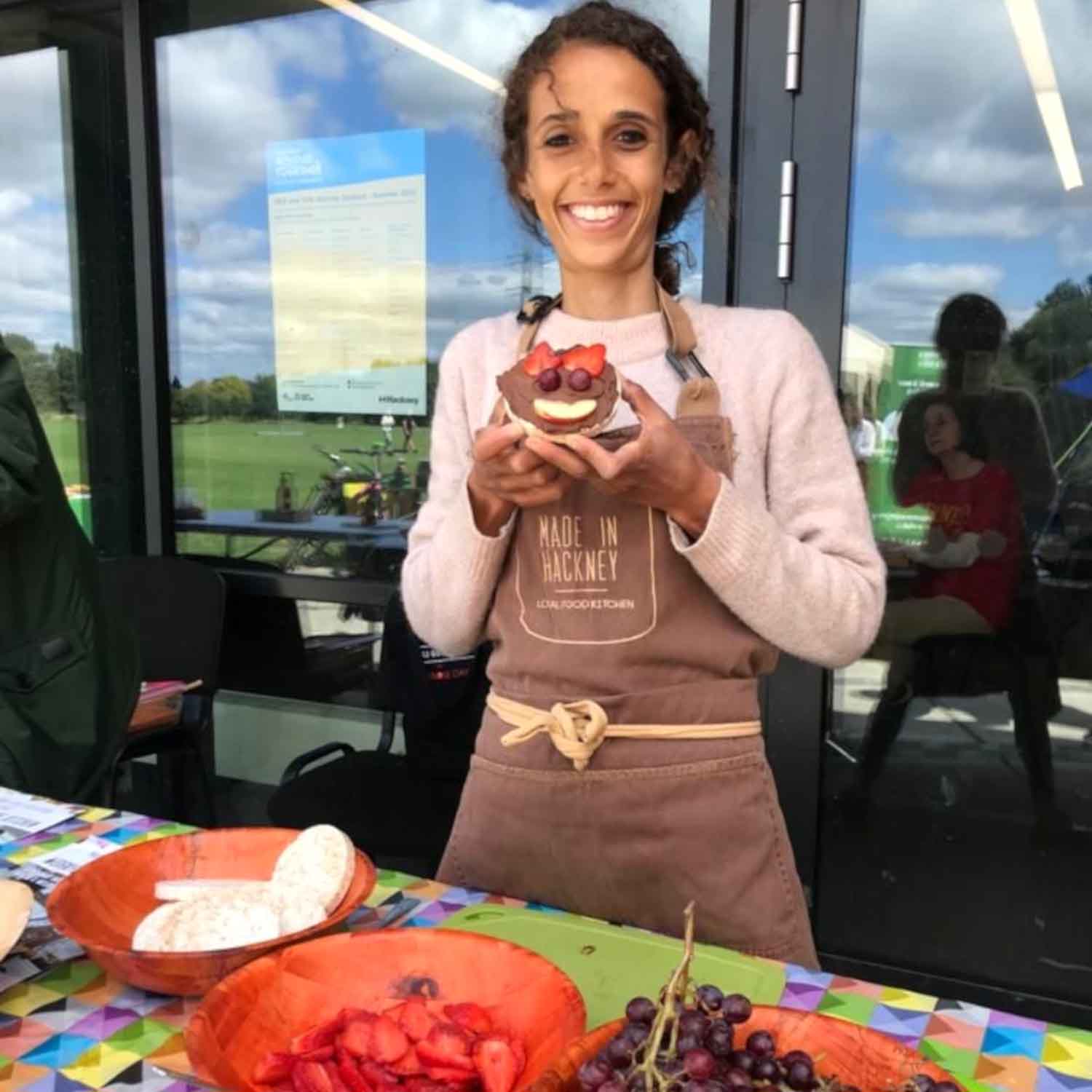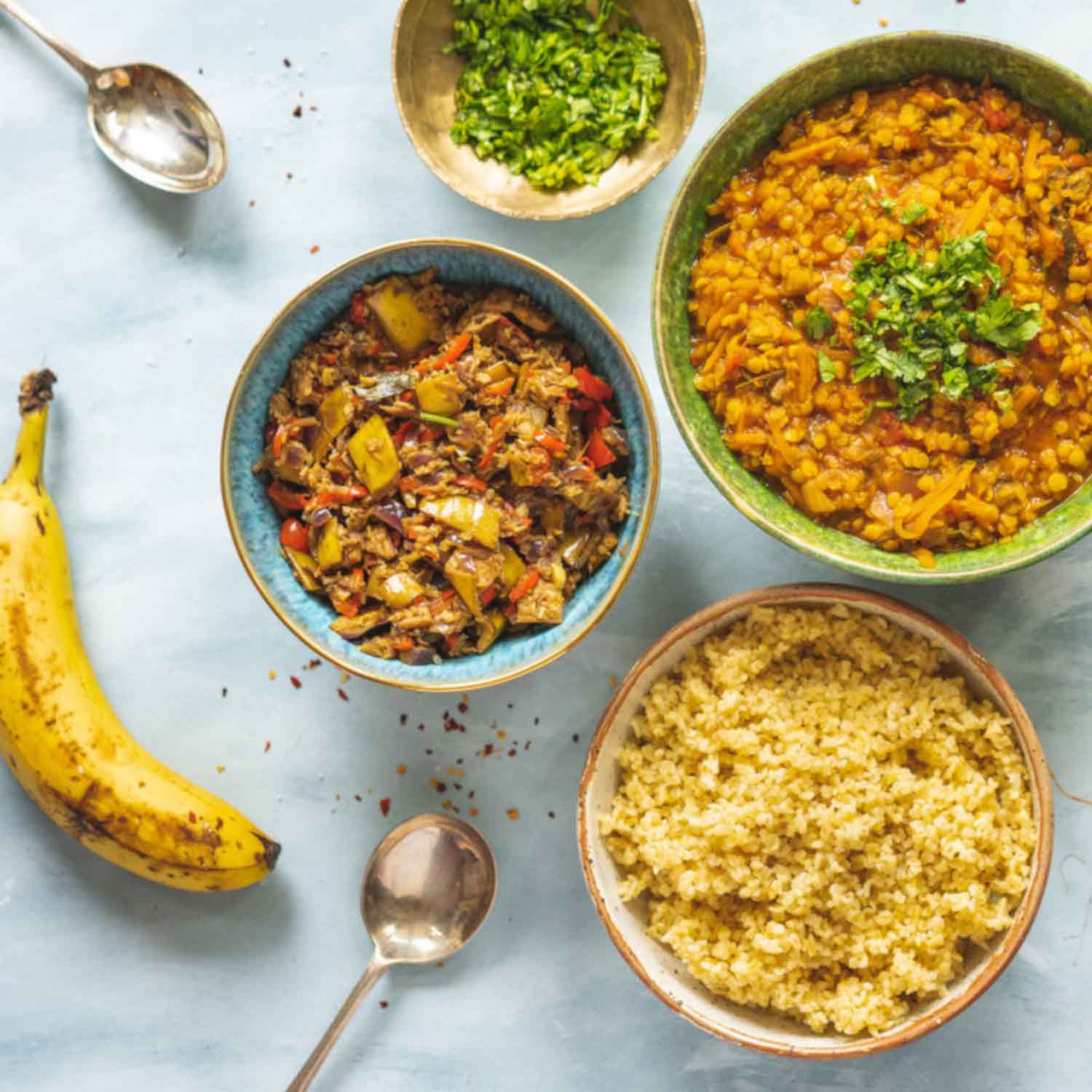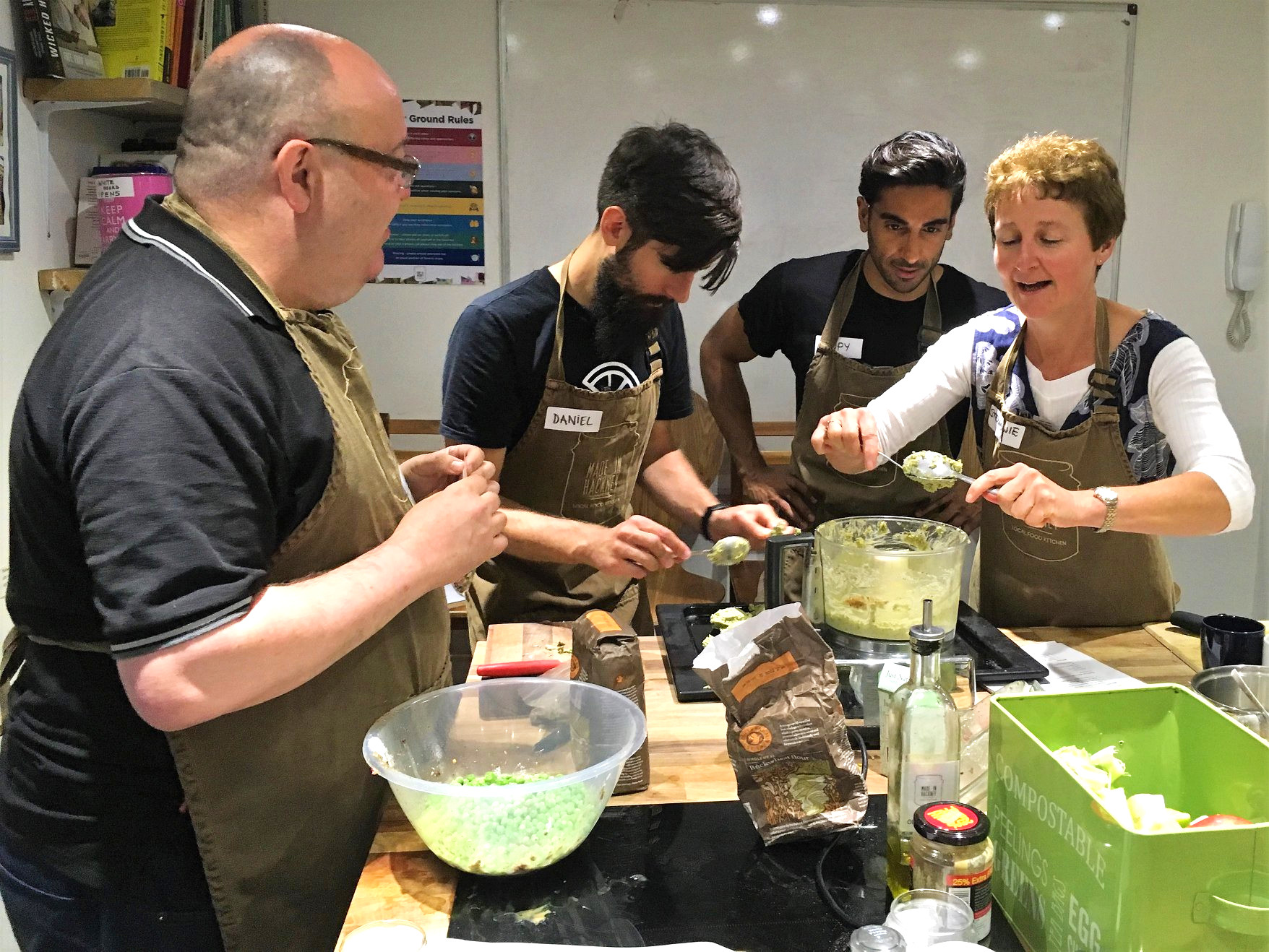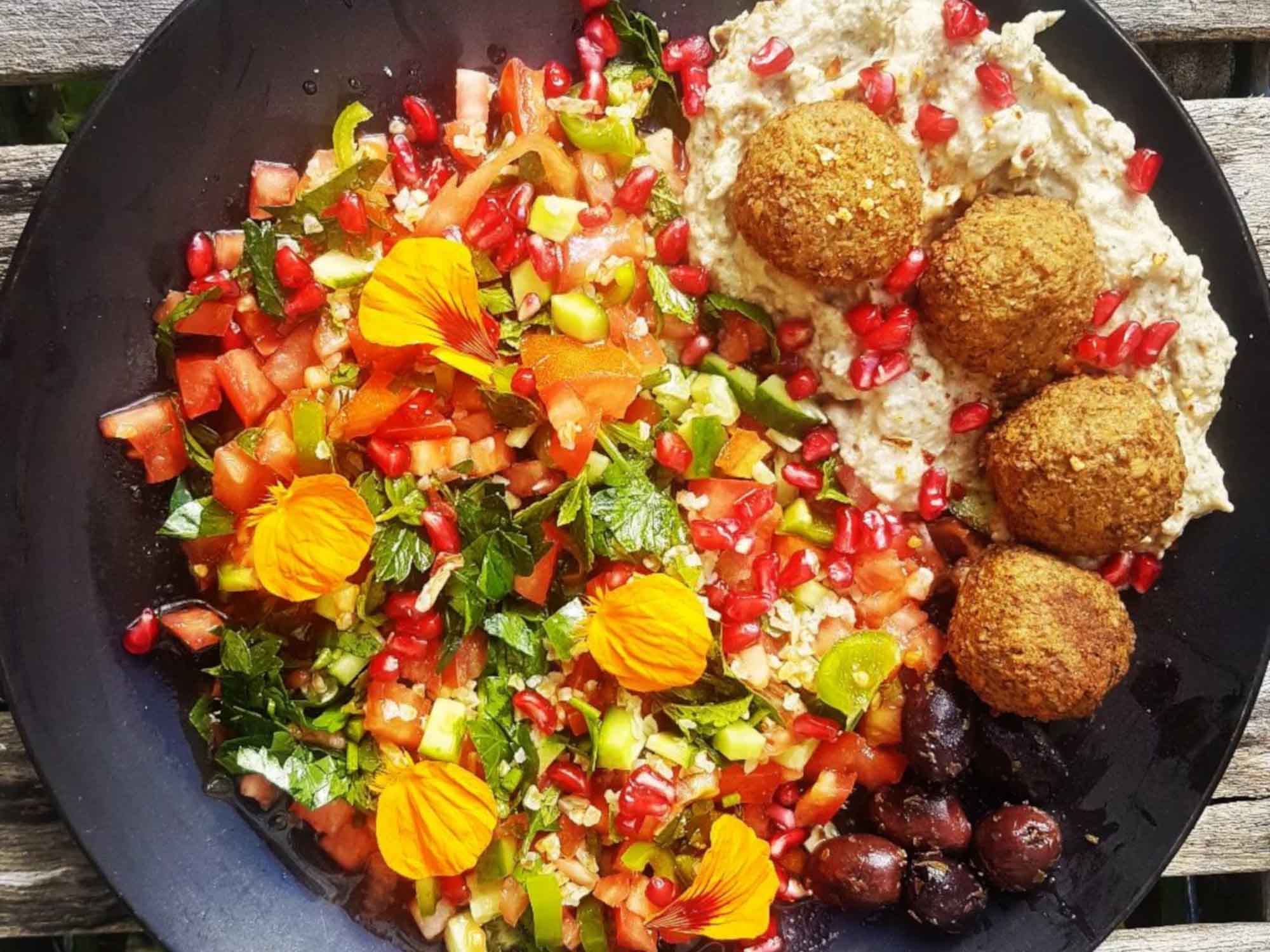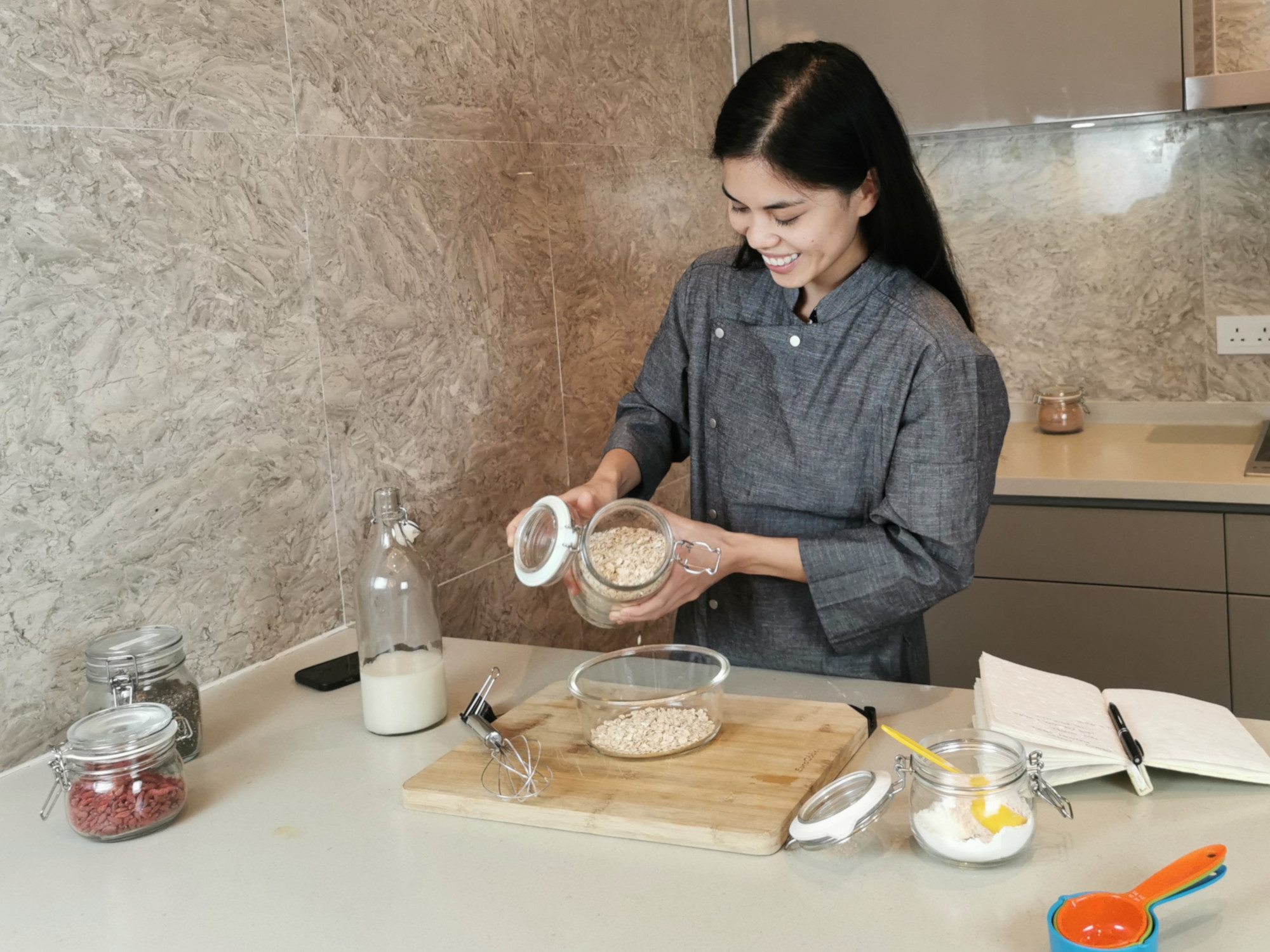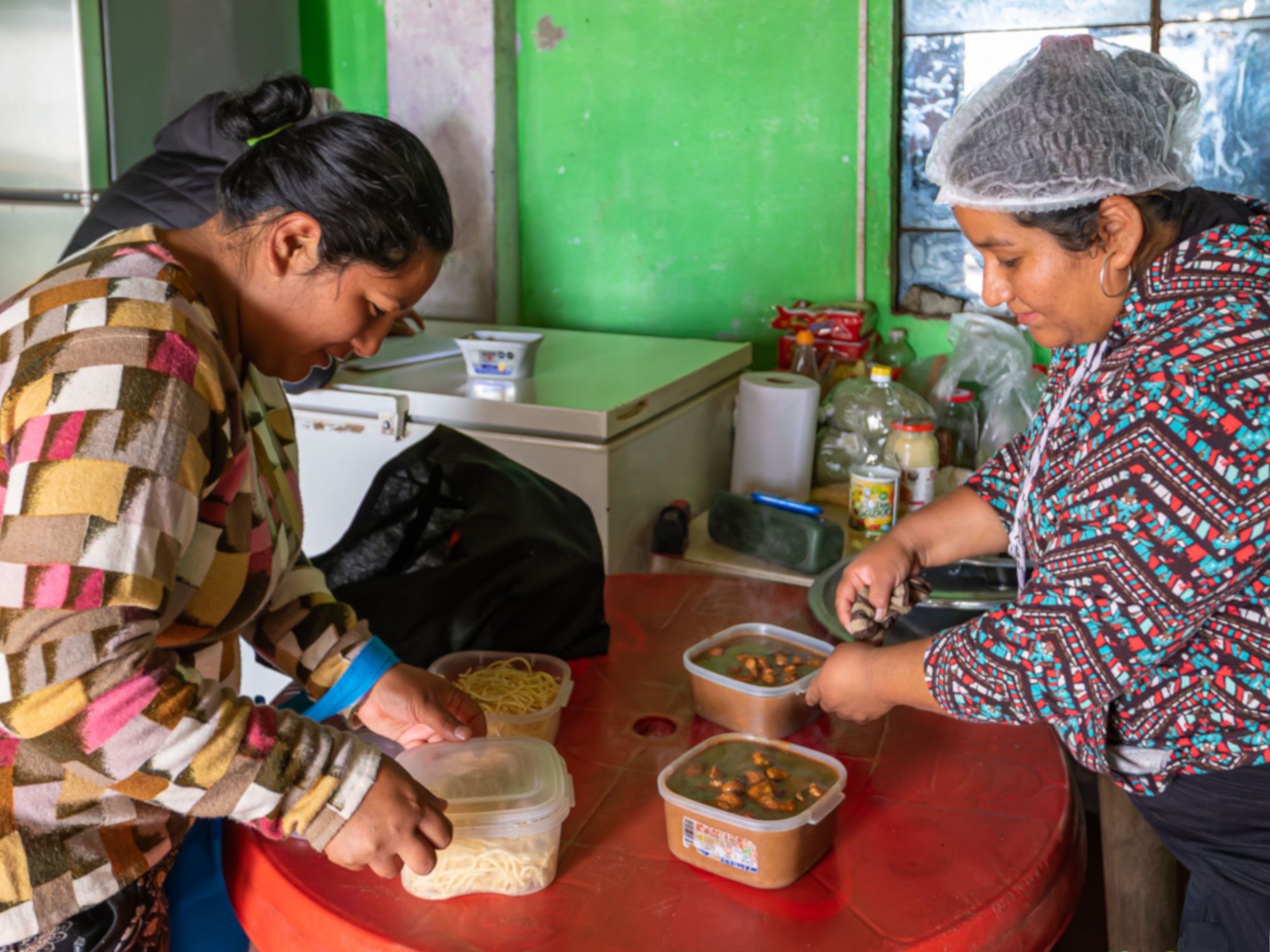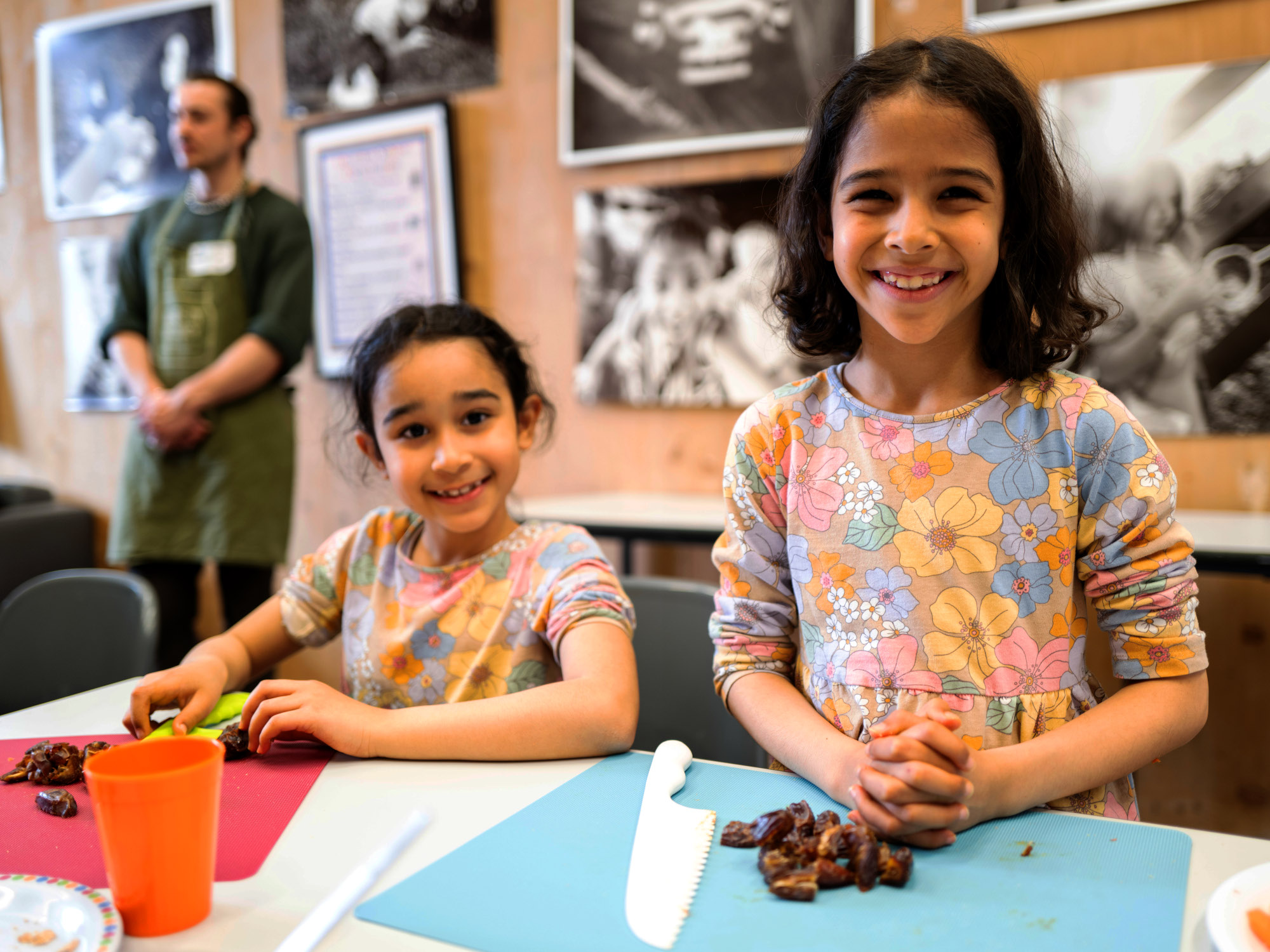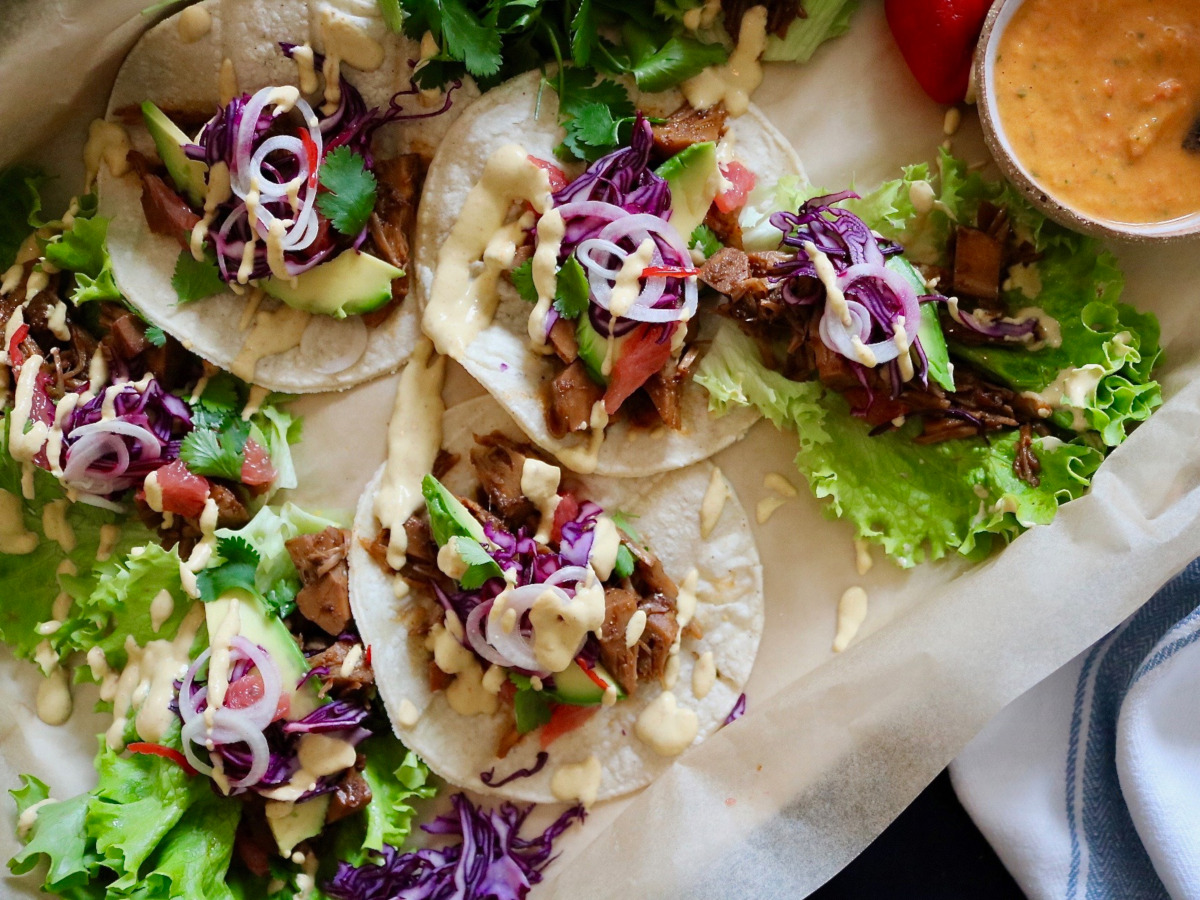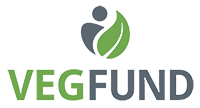Introducing plant-based nutrition
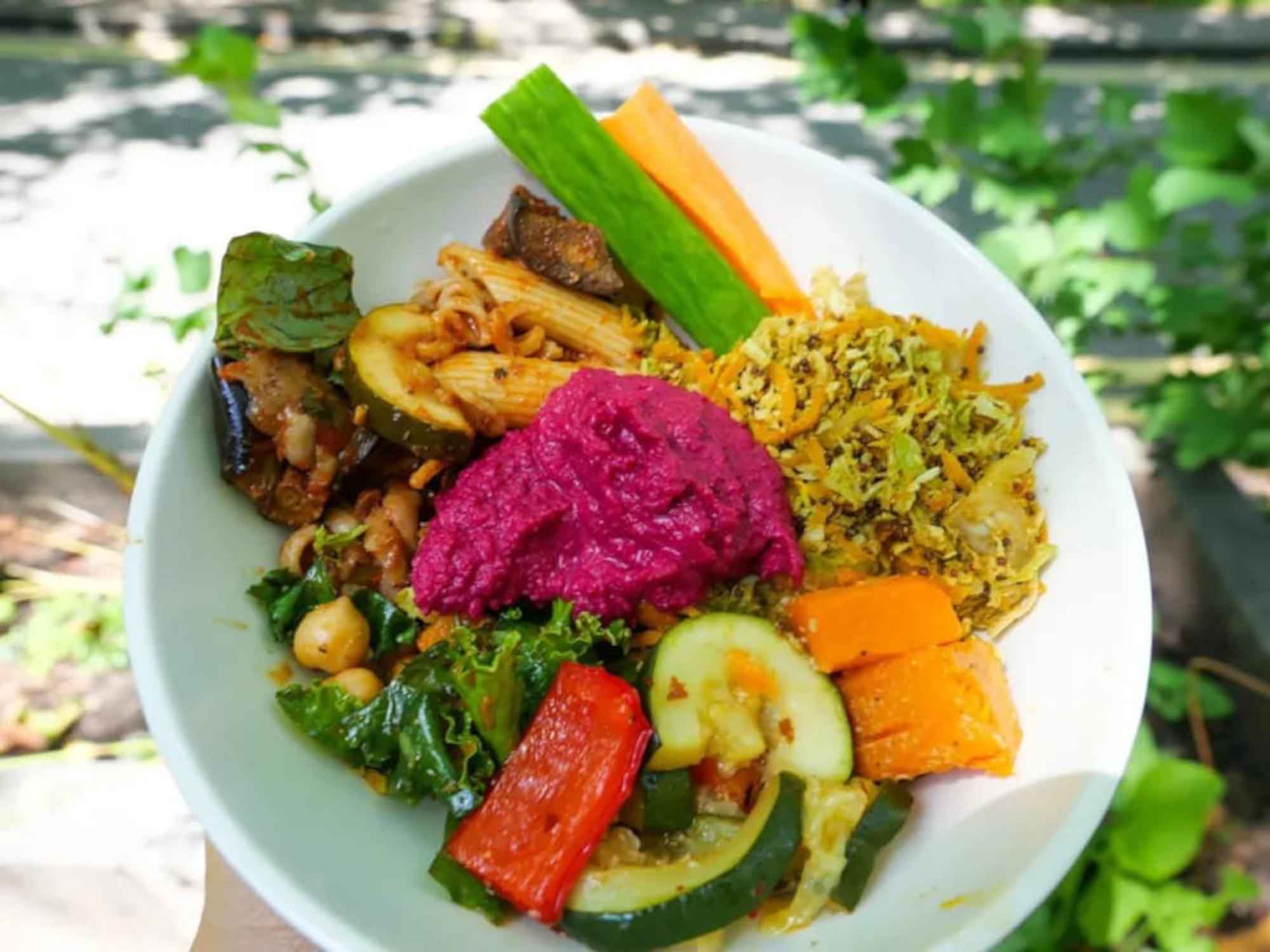
A common question we are asked as a vegan community kitchen is how do you get all the nutrition you need on a plant-based diet? We spoke to Hannah Walker, a registered dietitian and Made In Hackney teacher and nutritional consultant to dispel some of the myths around vegan nutrition.
An ‘eat the rainbow’ approach to nutrition
Hannah Walker has been involved in Made In Hackney since 2018, first as a volunteer before teaching zero waste classes and a diabetes cooking course. Hannah was an NHS (National Health Service) dietitian for a number of years before moving to the South West of England to work as part of the wellbeing service on a regenerative organic fruit and vegetable farm. As a former long distance runner Hannah really understood the need for a nutritionally-balanced diet when she went vegan in 2016 and studied to ensure she could support her patients who wanted to pursue a plant-based diet to meet their own health goals. Her favourite principle is to ‘eat the rainbow’ by selecting foods of all colours as that can provide the most nutritionally diverse meal – and well as looking truly deletable – and is an approach that is aligned with the Made In Hackney ethos. A vegan diet should be regarded as one of abundance where you are not missing anything from the exclusion of meat and dairy. In fact, there is so much more choice.
How to create a nutritionally balanced plant-based meal
Hannah recommends that “each meal should comprise of a range of seasonal colourful vegetables and/or fruits, making up at least one third of the plate; a wholegrain or starchy carbohydrate e.g. brown rice, buckwheat, quinoa, sourdough bread, potato/sweet potato; and a good source of plant-based protein e.g. lentils, beans, tofu/tempeh, nuts and seeds.” She adds, “I’m also a big advocate of using lots of herbs and spices, to add both flavour but also a great hit of extra nutrients. And diversity is key – ideally we should vary the types of plant foods we eat each day to ensure we are getting the range of nutrients we need to meet our requirements, but also to optimise our gut health. I generally promote a whole foods approach to eating but including some fortified foods, such as unsweetened plant-based milks and , nutritional yeast and fortified cereals, can be a useful way to boost levels of nutrients such as vitamin B12 and calcium, the former of which especially can be hard to obtain on a plant-based diet.”
Protein in a vegan diet
There is a lot of emphasis on protein when you mention a plant-based diet. After all, protein plays a critical role in the body to grow and repair muscles and bones – making it particularly important in childhood and adolescence – and is known as one of the key building blocks of life. However, there can be widespread misunderstanding of just how much protein each person needs as well as where to get it from. Hannah explains, “contrary to common belief, protein deficiency on a plant-based diet is very rare as there are many excellent sources of plant-based protein. These include beans, lentils, soy products e.g. tofu, tempeh, edamame, nuts and seeds, quinoa and other grains.” “Many vegetables also have surprisingly high levels of protein, such as broccoli, mushrooms and potatoes. Again what is key is to try to ensure a variety of plant-based protein sources, so that we get all of the essential amino acids (these are the building blocks of proteins) that our bodies need.”
Having optimal health by eating plants
In general a wholefoods plant-based diet is known as one of the healthiest, most nutrient-rich approaches to eating. As you start changing your diet, there are certain nutrients that can be hard to obtain. Hannah explains, “vitamin B12 is perhaps the most obvious one as there are very few naturally occurring sources in plants. Whilst some can be obtained from algae, certain seaweeds, mushrooms, and tempeh, it is generally wise to incorporate fortified sources such as nutritional yeast, fortified cereal and plant-based milks. Many vegans still opt to take a vitamin B12 supplement, and this is quite sensible as B12 deficiency is surprisingly common in both vegans and omnivores – who often do not have nutritionally balanced diets.” “Other nutrients to be mindful of include vitamin D, iodine, calcium, iron and omega 3. Vitamin D, calcium and iodine can be found in many fortified plant-based milks, whilst there are plenty of good sources of iron and omega-3 (such as lentils, beans, seeds, dried fruits and leafy green vegetables) in plant-based diets, but due to lower absorption and conversion rates we often need to consume them in higher quantities.” For optimal absorption of iron, Hannah advises “to consume iron-rich foods alongside foods rich in vitamin C e.g. citrus fruits, peppers, tomatoes and various other fruits and vegetables.” A diet rich in plants is high in fibre – a nutritional component that many people lack, particularly as you cannot get fibre from animal-based diets. Fibre is a vital part of having a healthy digestive system from making you feel full to avoiding constipation. Other health benefits associated with a whole food plant-based diet include having lower levels of cholesterol – a type of fat that can develop through a heavy diet – and lower chances of heart disease and strokes: often linked to cholesterol. For people new to plant-based diets it is important to understand where each nutritional component comes from and how to best consume this.
Nutrition in vegan cooking classes
When planning vegan cooking classes follow Hannah’s advice above on building a rainbow plate. She adds, “often these categories overlap, for example quinoa can count as a carbohydrate but is also an amazing source of complete protein (it contains all the amino acids we need), so in this case you can really up the protein content of a dish, this may be particularly beneficial for both adolescent and more elderly participants both of whom have increased protein requirements.” If you’re making several dishes in a class you don’t need to have the balance in each dish but across the whole meal. For optimal nutrition, Made In Hackney tends to avoid using white bread, pasta or rice and instead opts for whole grain versions. It’s also important to be aware of the ingredients in processed plant-based meat substitutes as they are often high in refined fats, salt and sometimes sugar too. Made In Hackney has produced a plant-based Eat Well Plate (a diagram regularly used in the UK National Health Service to provide information on balanced meals). You can download a copy on the Made In Hackney website. For more advice on recipe planning head to Module 4 on Creating the programme in Global Plant Kitchens.
Free online session
As part of the Global Plant Kitchens programme, mentor Sareta Puri hosted a session with Hannah Walker to share her knowledge of plant-based nutrition and how to plan great vegan cooking classes for your community cookery school.
